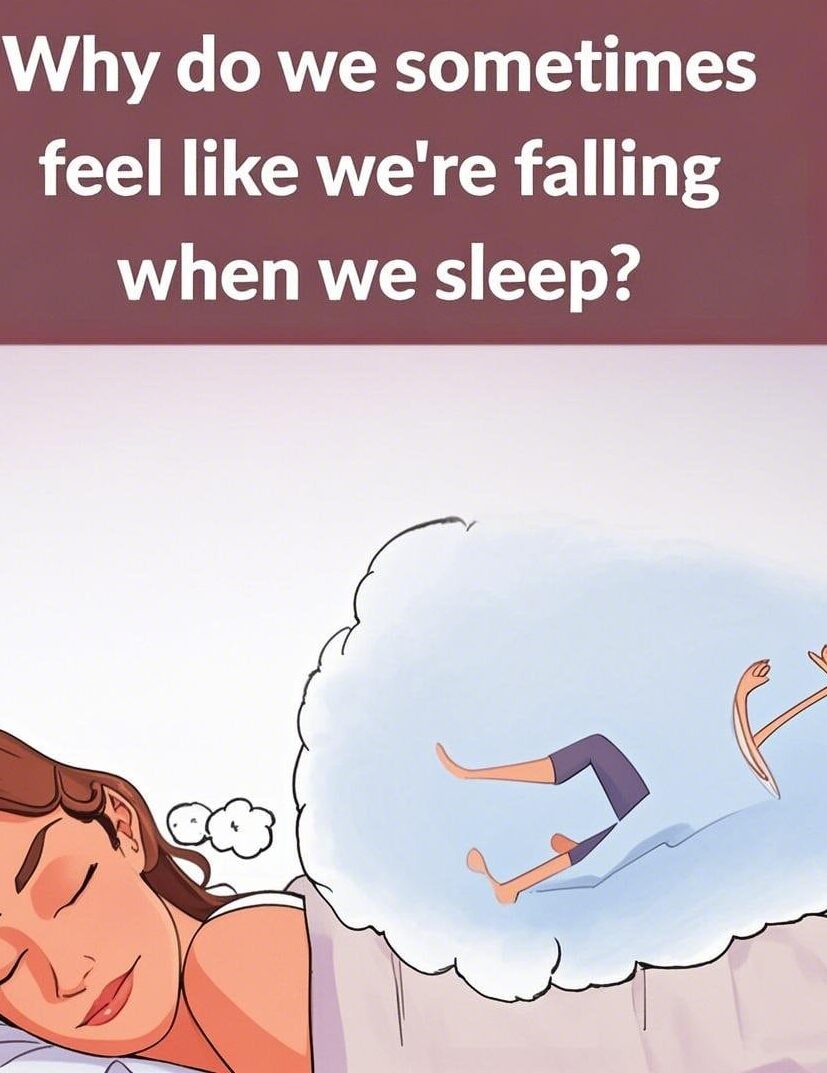Introduction: The Mysterious Sleep Twitch
Have you ever been on the verge of drifting off when suddenly — BAM! — your body jolts awake like you’ve just tripped over something invisible? It’s weird, it’s startling, and it leaves you wondering what on earth just happened.
A Common but Startling Experience
Believe it or not, you’re not alone. This strange little dance your body does right before sleep is incredibly common and totally normal (most of the time).
What’s Really Happening?
That sudden jerk has a name: a hypnic jerk. It’s part of the fascinating — and sometimes chaotic — journey your body takes from wakefulness into sleep.
Understanding Hypnic Jerks
Definition and Basic Explanation
A hypnic jerk, sometimes called a sleep start, is an involuntary muscle spasm that happens as you’re falling asleep. It’s so sudden that it can feel like your body is reacting to something — even though there’s nothing there.
Why Are They Called Hypnic Jerks?
The name comes from “hypnagogic,” which refers to the transitional state between wakefulness and sleep. It’s that magical (and sometimes weird) twilight zone your brain passes through each night.
What Causes Hypnic Jerks?
Natural Part of Falling Asleep
Hypnic jerks are a normal part of the sleep process. Your muscles relax as your body prepares for deeper sleep, and sometimes, the brain misinterprets this relaxation as a fall — triggering a jolt to “save you.”
Factors That Can Increase Their Frequency
While hypnic jerks can happen to anyone, certain things can make them more likely — stress, caffeine, and being overtired are the usual culprits.
The Science Behind the Sudden Jolt
Brain and Body Transitions During Sleep
As you fall asleep, your brainwaves start to change. Your heartbeat slows, your breathing evens out, and your muscles start to release tension. Sometimes, these changes confuse the brain, causing it to send a quick signal to your body to jolt you awake.
The Evolutionary Theory
One theory suggests that hypnic jerks are leftovers from our ancient ancestors. Early humans might have experienced muscle jerks to prevent themselves from falling out of trees while sleeping. It’s like a built-in safety alarm!
Are Hypnic Jerks Dangerous?
When They’re Completely Normal
For most people, hypnic jerks are harmless. They’re just a funny, sometimes annoying part of falling asleep and don’t indicate anything serious.
When to Seek Medical Advice
If the jerks are happening all the time, are extremely intense, or are accompanied by other symptoms like pain, confusion, or difficulty breathing, it’s a good idea to talk to a doctor.
Common Triggers for Hypnic Jerks
Stress and Anxiety
High levels of stress and anxiety keep your brain alert, even when your body is trying to rest. This can lead to more frequent and intense hypnic jerks.
Caffeine and Stimulants
Caffeine and energy drinks don’t just make you hyper while awake; they can also mess with your sleep transition, making your muscles twitchy and more likely to spasm.
Fatigue and Sleep Deprivation
If you’re running on empty, your body will struggle harder to fall asleep smoothly. That extra strain increases the chance of those jolts.
Emotional and Psychological Aspects
How Your Mind Plays a Role
Ever noticed you jerk more when you’re worried or overthinking? Your mind and body are deeply connected. An anxious brain can translate into an unsettled, jerky body.
Nighttime Fears and Dreams
Sometimes the hypnic jerk happens alongside a vivid image, like falling or tripping. Your brain might be processing fears or stress even as you drift off.
Hypnic Jerks vs Other Sleep Disorders
Restless Leg Syndrome
Restless Leg Syndrome (RLS) causes an irresistible urge to move your legs, often accompanied by uncomfortable sensations. Unlike hypnic jerks, RLS symptoms can persist long after you’ve fallen asleep.
Seizures and Other Conditions
Very rarely, jerking movements can be related to seizures. But hypnic jerks usually happen only once and are not associated with other symptoms like loss of consciousness or confusion.
How to Reduce Hypnic Jerks
Improving Sleep Hygiene
Good sleep habits can make a world of difference. Try keeping a regular bedtime, avoiding screens before bed, and winding down with calming routines.
Relaxation Techniques Before Bed
Deep breathing, progressive muscle relaxation, and guided meditations can calm your mind and body, making the transition into sleep smoother — and less jerky.
Tips for a Smoother Sleep Transition
Create a Calm Sleep Environment
Think cool, dark, and quiet. A comfy mattress and cozy blankets don’t hurt either. Creating a safe, soothing space can help signal to your body that it’s okay to let go and drift off.
Mindful Breathing and Meditation
Simple breathing exercises can help ground your nervous system and keep your body from panicking as you fall asleep.
Personal Experiences With Hypnic Jerks
Real People Share Their Stories
Many people describe feeling like they tripped off a sidewalk or fell into a hole — only to wake up safe in their bed. It’s surprisingly relatable once you start talking about it!
Funny and Surprising Moments
One person shared that they woke themselves up by jerking so hard they slapped their partner — not exactly the romantic cuddle session they had planned!
Children and Hypnic Jerks
Are They Normal in Kids?
Absolutely. Kids’ nervous systems are still developing, so hypnic jerks are pretty common (and usually harmless) during childhood.
How to Comfort a Child Who Experiences Them
Reassure them that it’s normal and nothing to be afraid of. A calming bedtime routine can also help reduce occurrences.
Myths and Misunderstandings
Superstitions About Sleep Twitches
Some cultures once believed hypnic jerks were caused by evil spirits trying to snatch the soul — spooky, but thankfully not true!
What Science Actually Says
Science points to natural neurological processes, not anything supernatural. Your body is simply adjusting to a different state of being.
When Hypnic Jerks Might Indicate a Bigger Issue
Signs to Watch For
If your hypnic jerks are severe, frequent, or accompanied by unusual symptoms (like memory loss, hallucinations, or confusion), it’s worth checking in with a healthcare provider.
Talking to a Sleep Specialist
Sleep specialists can help diagnose underlying conditions and offer tailored strategies to help you sleep peacefully.
Conclusion
While hypnic jerks can feel a little freaky, they’re usually just your body’s way of easing into sleep. Understanding what they are — and why they happen — can take away the fear and let you focus on what really matters: getting that sweet, restorative sleep your body and mind need.
FAQs
1. Can hypnic jerks wake you up completely?
Yes, sometimes they can jolt you awake, but usually, you can fall back asleep quickly afterward.
2. Are hypnic jerks more common at certain ages?
They can happen at any age but are especially common during stressful or exhausting periods of life.
3. Can lifestyle changes help reduce them?
Absolutely. Better sleep habits, less caffeine, and stress reduction can make a big difference.
4. Should I be worried if I have frequent hypnic jerks?
Not necessarily, but if they’re very intense or accompanied by other symptoms, it’s smart to talk to a doctor.
5. Is there any way to stop hypnic jerks completely?
You might not stop them entirely, but calming your mind and body before bed can greatly reduce their frequency.

